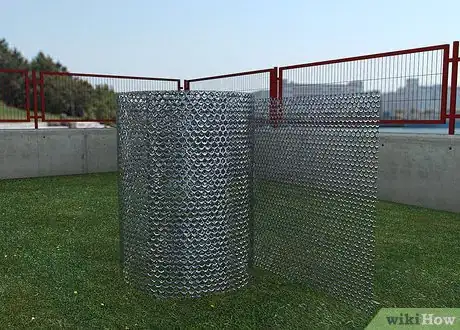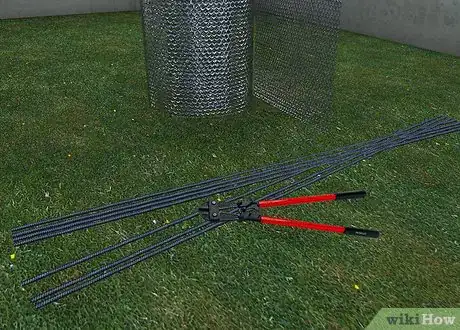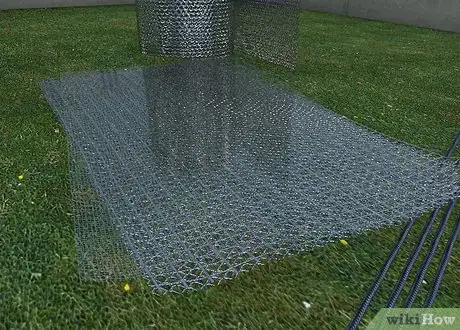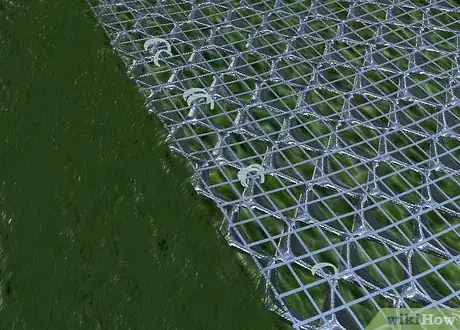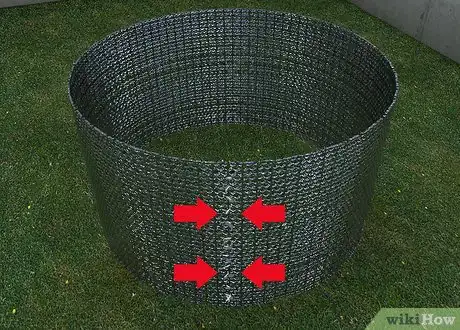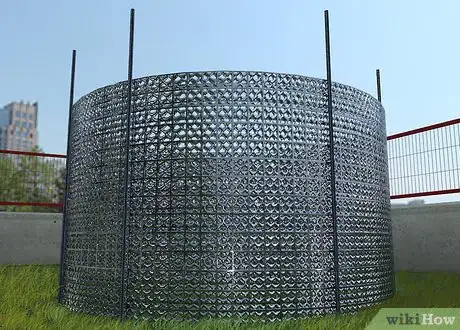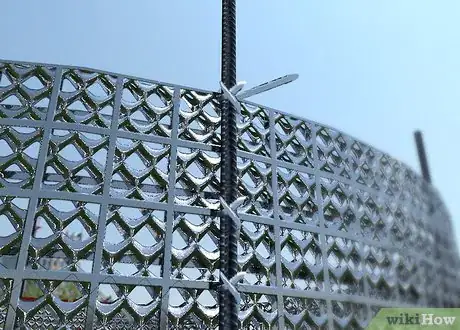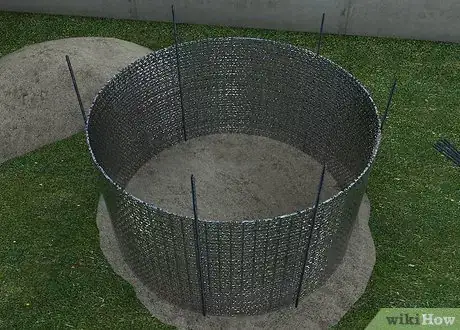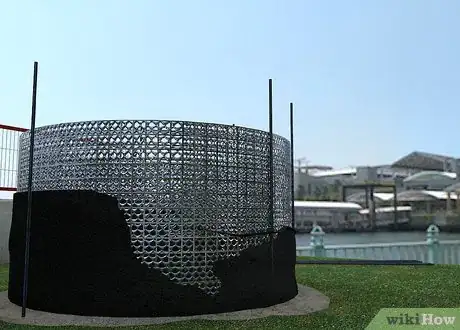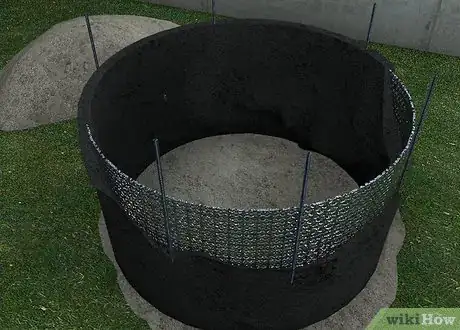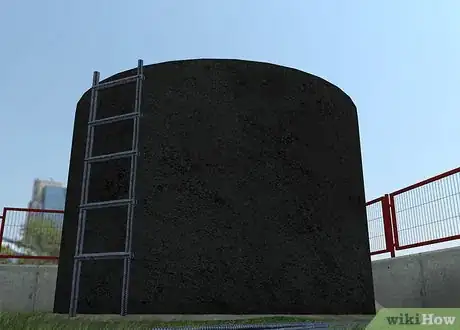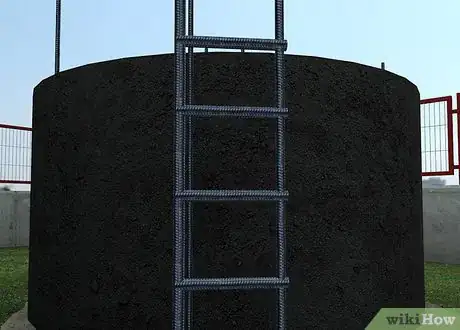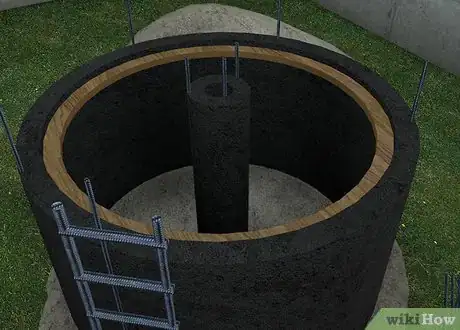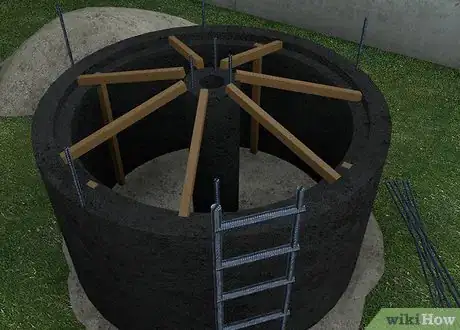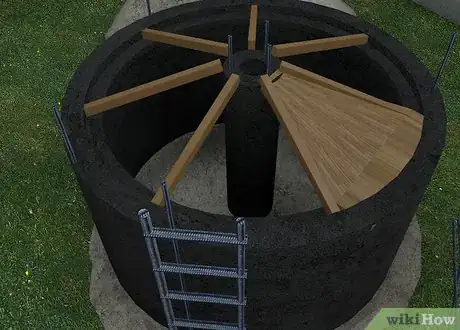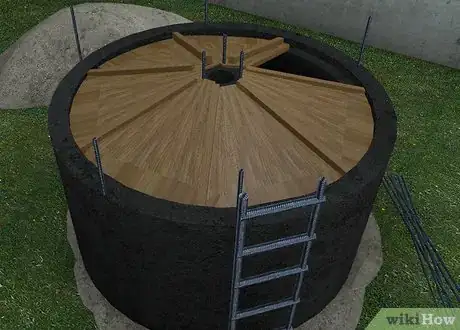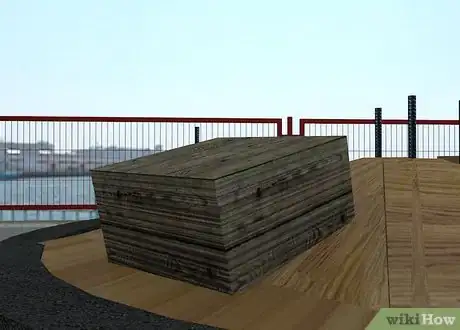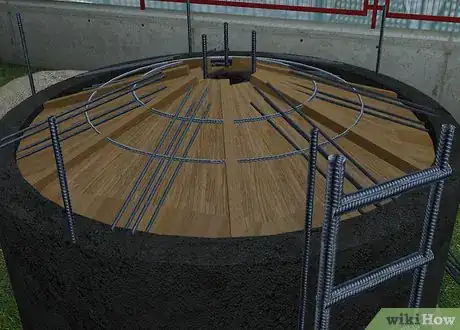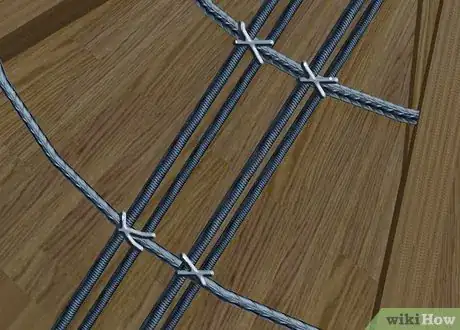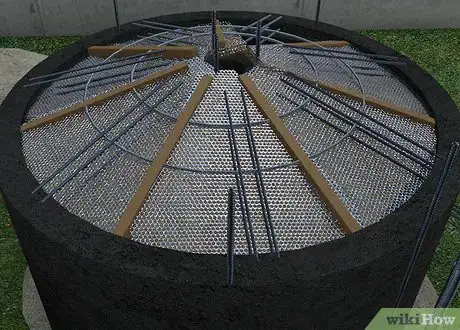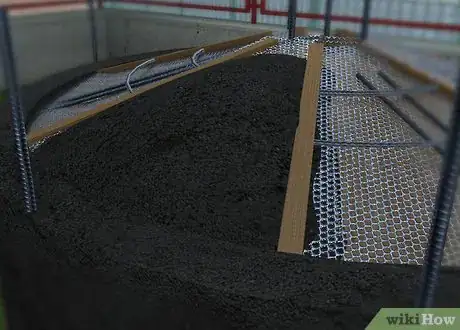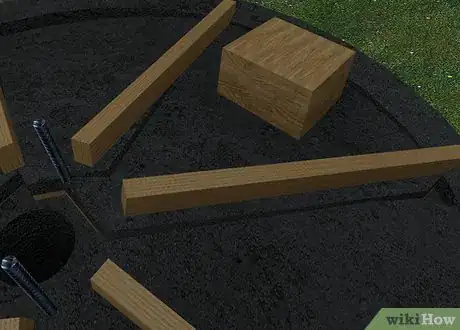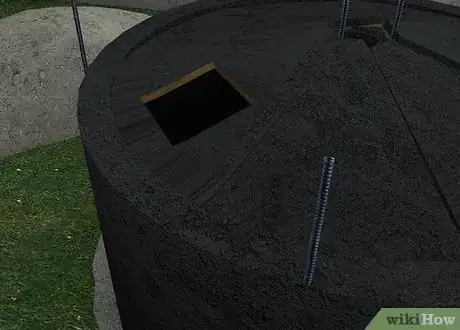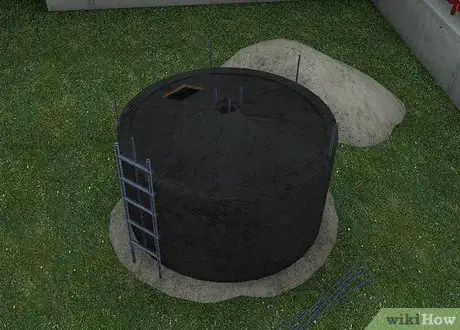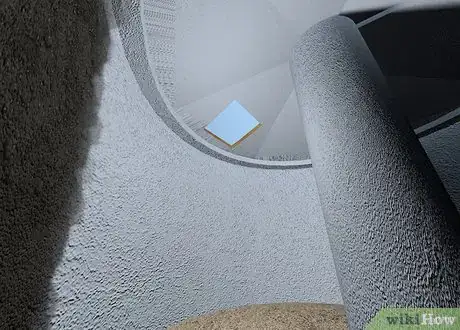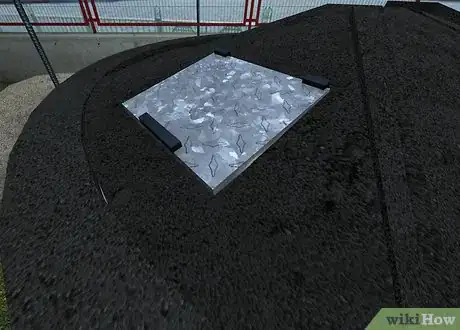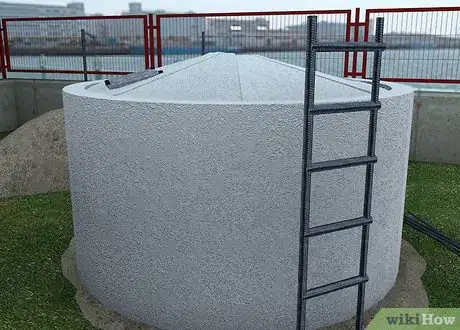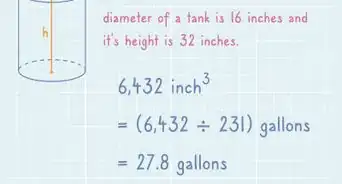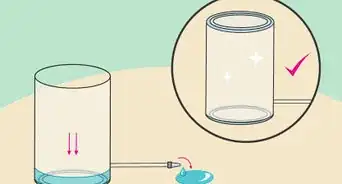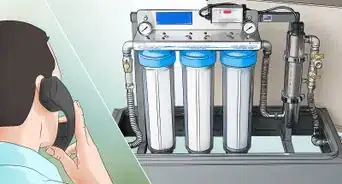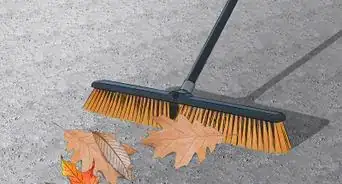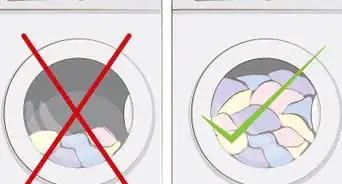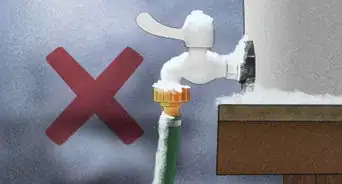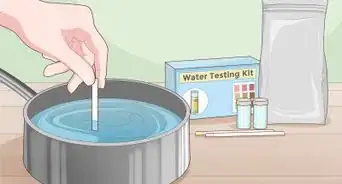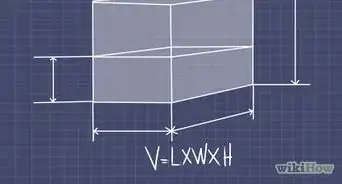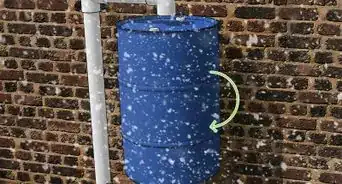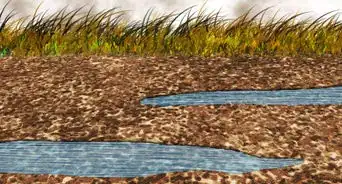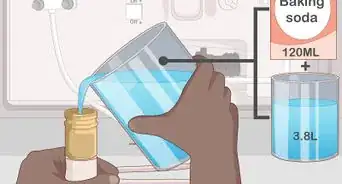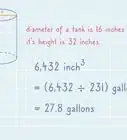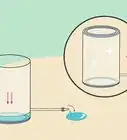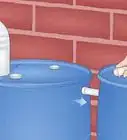X
wikiHow is a “wiki,” similar to Wikipedia, which means that many of our articles are co-written by multiple authors. To create this article, 10 people, some anonymous, worked to edit and improve it over time.
This article has been viewed 95,665 times.
Learn more...
Ferrocement water tanks are durable, inexpensive, and easy to build. Keep reading for tips on how to take on this project yourself!
Steps
Method 1
Method 1 of 2:
Wall Construction Directions
-
1Cut the chicken wire/hexagonal wire mesh using the wire cutters. The tank size will dictate the necessary sizes of the mesh.[1]
-
2Cut the electro-welded mesh using the bolt cutters. The tank size will dictate the necessary sizes of the mesh.[2]Advertisement
-
3Lay the chicken wire and electro-welded mesh flat to create layers. The layering should be as follows: 2 layers of chicken wire, 1 layer of electro-welded mesh, 2 layers of chicken wire.[3]
-
4Using wire ties and the pliers, fasten the flat layers of mesh together.[4]
-
5Know that once the mesh layers are securely fastened, roll one end of the mesh to the other and attach the two ends together using the wire ties. This will create the circular body structure of the tank walls.
-
6Stand the mesh frame upright on the tank foundation and attach, using the wire ties, the frame to rebar protruding from the tank foundation.
-
7Tie the reinforcement wire near the top of the mesh frame and connect the wire to the ground. Be sure that the wire is in tension. This will prevent the walls from buckling during the construction and concrete curing stages. Four reinforcement wires around the perimeter of the frame are sufficient.
-
8Place scrap pipes as form placeholders for the inflow, outflow, overflow, and drainage pipe locations.[5]
-
9Slap the concrete mortar onto the outside of the mesh frame. The mortar should be applied so that the holes of the mesh are completely filled.[6]
-
10Allow the mortar to cure.[7]
-
11Repeat step 9 with the inside of the mesh frame. Use a ladder when climbing in and out of the tank structure.
-
12Allow the mortar to cure. Keep the walls wet during the curing process. Once all the mortar has been applied, the walls will be about 2 inches (5.1 cm) thick.
Advertisement
Method 2
Method 2 of 2:
Roof Construction Directions
-
1Cut the wood boards so that one edge is curved outward. This can be done while the tank walls are curing. The tank size will dictate the necessary sizes of the forms.
-
2Once the walls are fully cured, position the wood beams inside the tank. One log will be the center pole sticking up vertically from the center of the foundation. Two logs will be cross bars near to the top of the walls to support the wooden roof forms. Additional vertical logs will also be used to support the wooden roof forms; these logs should be placed along the inside circumference of the walls.
-
3Nail the cut wood board forms to the support poles. The wood will create a domed roof form.[8]
-
4Nail the plywood sheets flat against the wood board forms.[9]
-
5Leave one square space open in the forms. This will provide the tank lid opening.[10]
-
6Lay concentric circle of rebar on top of the plywood sheets.
-
7Tie supporting wires to the rebar circles using wire ties. The wires should run from the dome center down to the base of the roof.[11]
-
8Place and tie chicken wire mesh to the supporting wires.
-
9Slap concrete mortar mixture onto the roof forms. Be sure that enough concrete gets below the rebar circles.
-
10Allow the concrete to cure. Keep the concrete wet during this process.
-
11Once the concrete has cured, enter the tank through the open square space.
-
12Carefully remove the wood beams, forms and plywood.
-
13Paint the inside of the tank with the waterproof sealant.[12]
-
14Install the square metal lid into the open space of to roof.
-
15Optional: Paint the walls and roof of the ferrocement tank with any desired color.
Advertisement
Community Q&A
-
QuestionWhat type of sealant is used inside the tank?
 Community AnswerCement and ferro-cement are used.
Community AnswerCement and ferro-cement are used.
Advertisement
Warnings
- Caution: When working with concrete, the necessary safety precautions must be taken. Gloves, safety goggles, and face masks should be worn.⧼thumbs_response⧽
Advertisement
Things You'll Need
Equipment
- Wire Cutters
- Bolt Cutters
- Trowels
- Wheelbarrow
- Ladder
- Drill
- Pliers
- Hand Saw
- Electric Circular Saw (if electricity is available)
- Hammers
- Paintbrushes
- Shovels
Materials
- Chicken/Hexagonal Wire Mesh
- Electro-welded Mesh
- Wire Ties
- 12 gauge Reinforcement Wire
- Cement/Mortar Mixture
- 12 mm Rebar
- Wood Boards
- Assorted Wood Beams (Logs)
- Plywood Sheets
- Metal Lid
- Sika-1 Waterproof Sealant
- Nails
For a ferrocement tank to be highly effective, the materials should be available locally. This allows for proper maintenance and tank sustainability.
References
- ↑ http://hydro.engr.scu.edu/files/shared/ferrocement_water_tanks.pdf
- ↑ http://hydro.engr.scu.edu/files/shared/ferrocement_water_tanks.pdf
- ↑ http://hydro.engr.scu.edu/files/shared/ferrocement_water_tanks.pdf
- ↑ http://hydro.engr.scu.edu/files/shared/ferrocement_water_tanks.pdf
- ↑ https://permaculturenews.org/2017/06/08/ferro-cement-water-tanks-affordable-diy-solution/
- ↑ https://permaculturenews.org/2017/06/08/ferro-cement-water-tanks-affordable-diy-solution/
- ↑ http://hydro.engr.scu.edu/files/shared/ferrocement_water_tanks.pdf
- ↑ http://www.cuvewaters.net/fileadmin/edit/Downloads/RFWH_Toolkit/5_CM1_Ferrocement-Tank_E.pdf
- ↑ https://www.unhcr.org/en-us/publications/operations/49d089a62/large-ferro-cement-water-tank-design-parameters-construction-details.html
- ↑ http://www.cuvewaters.net/fileadmin/edit/Downloads/RFWH_Toolkit/5_CM1_Ferrocement-Tank_E.pdf
- ↑ https://www.unhcr.org/en-us/publications/operations/49d089a62/large-ferro-cement-water-tank-design-parameters-construction-details.html
- ↑ http://www.i4at.org/surv/ferro.htm
- This document was written for technical writing class at the University of Maryland, College Park.
About This Article
Advertisement
